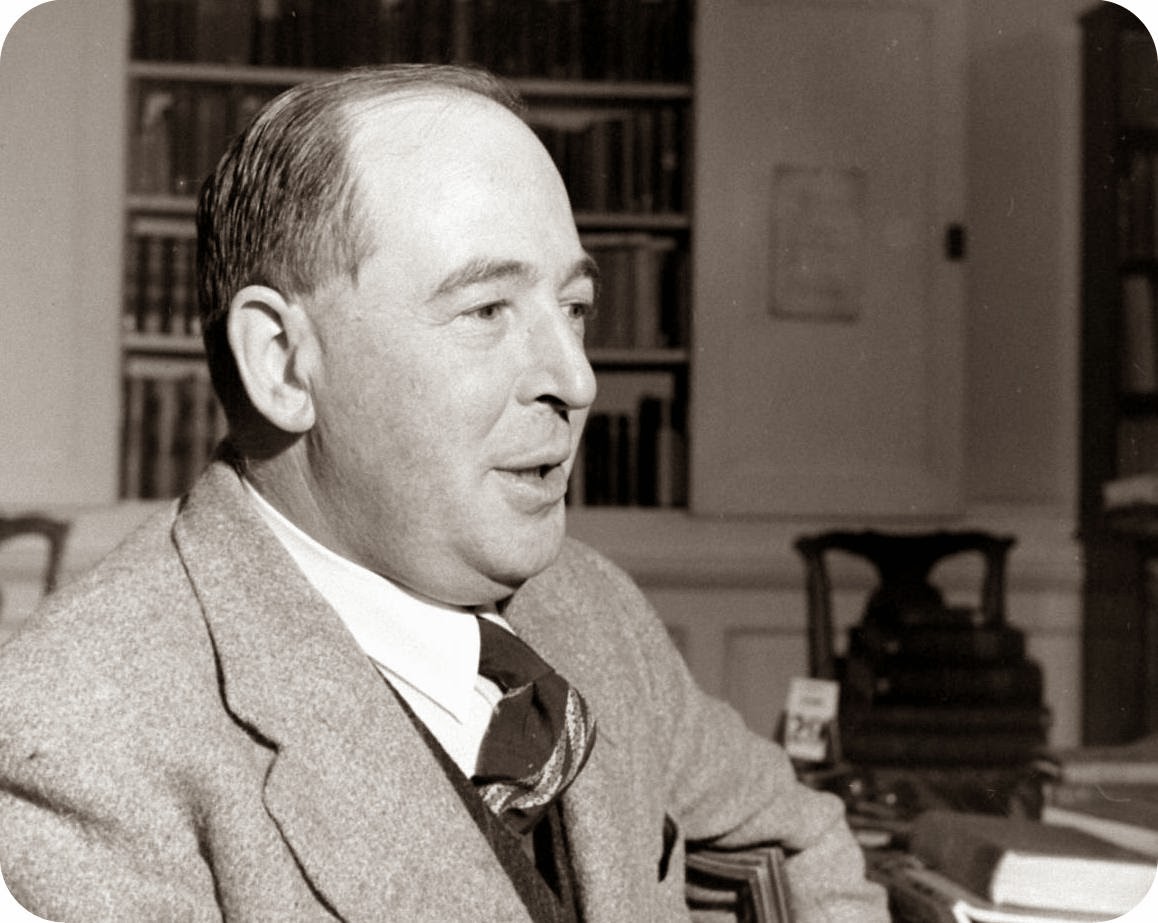But
I’ll restrain myself on that last point. Instead, let me outline those first
three steps:
- First of all, there is more to the world than just material stuff. Materialism (that there is just brute matter) is in fact self-defeating because, if we are pure materialists, rational thinking is impossible. Lewis’s book Miracles principally presents this apologetic, but it is scattered throughout his writings, especially in the ‘40s.
- Human beings seek something that this world cannot satisfy, which points to a God beyond this world. “If I find in myself desires which nothing in this world can satisfy, the only logical explanation is that I was made for another world.” This argument appears in The Problem of Pain and in “The Weight of Glory.”
- There is a Law or Rule about Right and Wrong (or the Law of Nature, or even natural law) that exists in all human beings and points to the God created that law within us. Lewis developed this apologetic in his opening Broadcast Talks for BBC, which became the first section or “book” of Mere Christianity, as well as his 1943 Riddell lectures later published as The Abolition of Man.
Let’s
look at #2 for a moment: Lewis’s argument from Joy or desire. The argument
brings to mind the question of whether Albert Einstein’s words about “God” were
really about, well, God, such as “everyone who is seriously involved in the
pursuit of science becomes convinced that a spirit is manifest in the laws of
the Universe—a Spirit vastly superior to that of man.” Richard Dawkins argues
(not surprisingly as the arch-atheist) that this stuff in Einstien isn’t really
about God, it’s about transcendence. In his recent book, scientist Amir D.
Aczel, contends (as I understand him) that, no, this is really about the Deity,
and in fact, believing in God is profoundly compatible with science.
So
I'm going to set Lewis in this fray. What is he saying? Is he arguing that this
sense of transcendence—or better, this desire for it, which Lewis calls “Joy”—proves God? No, at least not as a
deductive proof. Instead Lewis is making a suppositional
argument here: We do not fully understand the desire for something beyond (or
Joy) itself, but it opens to a wider metaphysical conclusion, one that points
to God who created us. Or more systematically, the form of this suppositional
argument from desire proceeds as follows: Suppose
God created this world, we can imagine that God would leave a desire for more
than this world offers. We experience a longing for more than this world
offers. It is reasonable to see this as pointer to God.
In
a certain sense then, the argument cannot be decided on the basis of science or
not. Science seeks to understand the interactions of the material world. And
yet, many scientists, because they focus their lives on the interactions of the
material world, believe that this world is all there is.
Like
my title says, these are notes. Nothing fully conclusive yet. But I’m interested to
know what you think…


